
Ras Al Naqb: The Gateway to Jordan's Hidden Gems
Ras Al Naqb is a charming town nestled in the southern part of Jordan. It serves as an entrance to the dramatic landscapes and rich cultural heritage of the region. The town is perched atop a series of limestone hills, offering breathtaking views of the surrounding valleys and desert expanses. Visitors to Ras Al Naqb can explore a blend of natural beauty and historical significance. The area is known for its ancient trade routes, which once connected the Arabian Peninsula to the Mediterranean. Today, you can still see remnants of these historic pathways, making it a paradise for history buffs and adventure seekers alike. The local Bedouin culture adds a unique layer to the experience, with opportunities to learn about their traditions and way of life. Outdoor enthusiasts will find plenty of activities to enjoy. From hiking and rock climbing to bird watching and star gazing, the natural environment around Ras Al Naqb is a playground for nature lovers. The clear, unpolluted skies make it an excellent spot for observing the stars, while the rugged terrain is ideal for trekking and exploration. It's a destination that offers a mix of tranquility and excitement, perfect for those looking to immerse themselves in the beauty and history of Jordan.
Local tips in Ras Al Naqb
- Best visited during spring or autumn to avoid the extreme summer heat or winter chills.
- Carry plenty of water and wear sturdy shoes for hiking and exploring the rugged terrain.
- Learn a few basic phrases in Arabic to better connect with the friendly local Bedouin community.
- Bring a good camera, as the panoramic views and starry skies offer excellent photo opportunities.
- Consider hiring a local guide to enhance your experience and gain deeper insights into the area's history and culture.
Ras Al Naqb: The Gateway to Jordan's Hidden Gems
Ras Al Naqb is a charming town nestled in the southern part of Jordan. It serves as an entrance to the dramatic landscapes and rich cultural heritage of the region. The town is perched atop a series of limestone hills, offering breathtaking views of the surrounding valleys and desert expanses. Visitors to Ras Al Naqb can explore a blend of natural beauty and historical significance. The area is known for its ancient trade routes, which once connected the Arabian Peninsula to the Mediterranean. Today, you can still see remnants of these historic pathways, making it a paradise for history buffs and adventure seekers alike. The local Bedouin culture adds a unique layer to the experience, with opportunities to learn about their traditions and way of life. Outdoor enthusiasts will find plenty of activities to enjoy. From hiking and rock climbing to bird watching and star gazing, the natural environment around Ras Al Naqb is a playground for nature lovers. The clear, unpolluted skies make it an excellent spot for observing the stars, while the rugged terrain is ideal for trekking and exploration. It's a destination that offers a mix of tranquility and excitement, perfect for those looking to immerse themselves in the beauty and history of Jordan.
When is the best time to go to Ras Al Naqb?
Iconic landmarks you can’t miss
Petra
Explore Petra, the breathtaking Rose City of Jordan, where history, architecture, and natural beauty converge in a remarkable archaeological adventure.
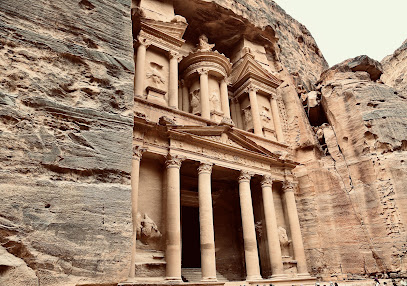
Amman Citadel
Experience the rich history of the Amman Citadel, a stunning archaeological site that reveals the layers of Jordan's past amidst breathtaking city views.
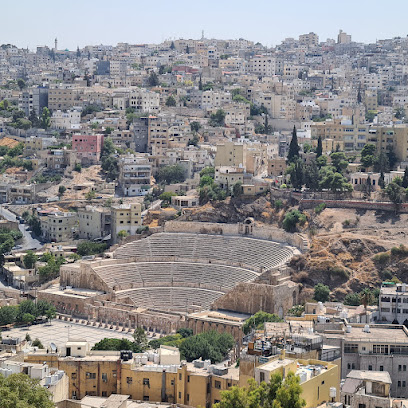
The Treasury
Discover the breathtaking beauty of The Treasury in Petra, Jordan, a historical landmark that showcases ancient Nabataean artistry and architectural brilliance.
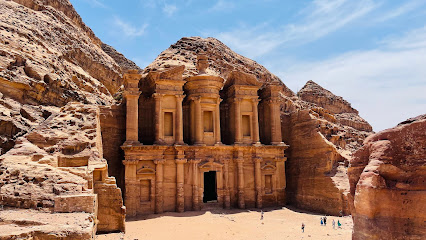
Wadi Rum Protected Area
Experience the breathtaking beauty of Wadi Rum, a UNESCO World Heritage site with stunning landscapes and rich Bedouin culture.
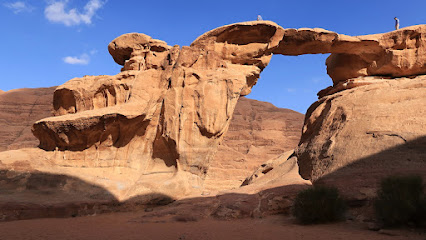
Ajloun Castle
Explore Ajloun Castle: A breathtaking historical gem in Jordan's hills, rich with history and stunning views.
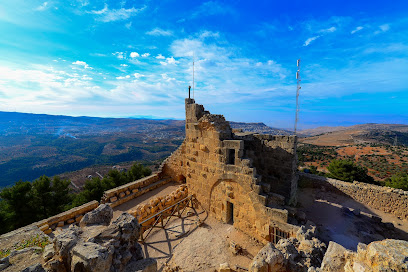
Kerak Castle
Discover the rich history and breathtaking views at Kerak Castle, a stunning medieval fortress in Jordan that captivates every visitor.
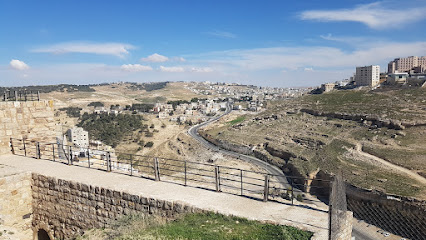
Ma'in Hot Springs
Explore the therapeutic wonders of Ma'in Hot Springs, a serene oasis in Jordan known for its natural thermal waters and stunning landscapes.
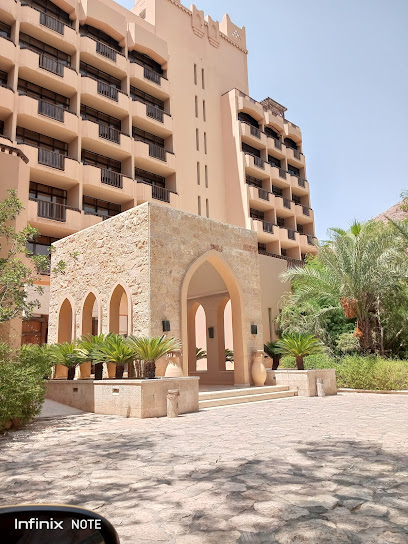
The Monastery
Discover the awe-inspiring Monastery in Petra, a historical marvel showcasing Nabatean architecture and rich cultural heritage in Jordan.
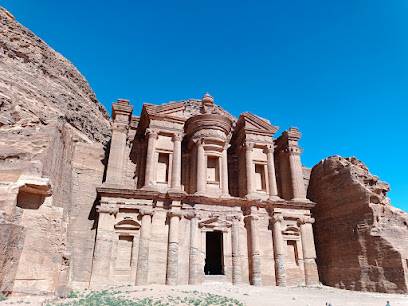
Al-Azraq Castle
Explore Al-Azraq Castle, a 13th-century fortress in Jordan, where history meets breathtaking desert landscapes in a remarkable travel experience.
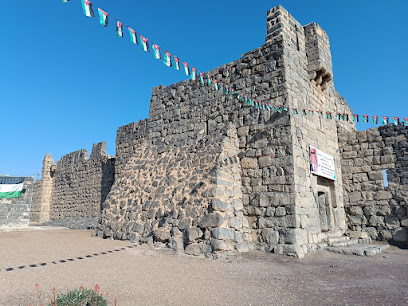
Roman Temple of Hercules
Explore the Roman Temple of Hercules, an awe-inspiring archaeological site in Amman, Jordan, steeped in history and stunning views.
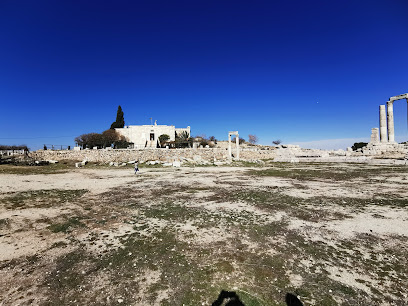
Arab Revolt Plaza
Experience the vibrant culture and history at Arab Revolt Plaza in Aqaba, a perfect blend of tradition, relaxation, and scenic beauty.
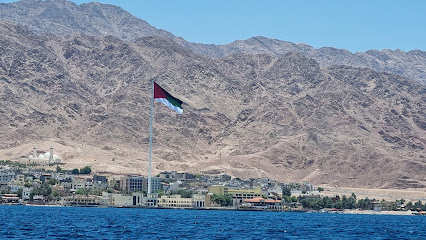
Al-Siq
Explore Al-Siq, the breathtaking gorge leading to Petra, where natural beauty meets ancient history in the heart of Jordan.
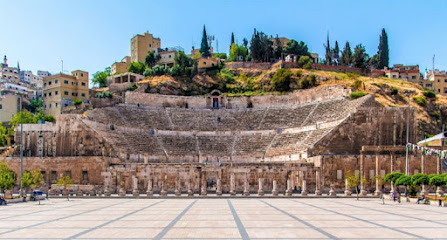
Roman Nymphaeum
Explore the Roman Nymphaeum in Amman, a stunning historical landmark showcasing ancient Roman architecture and rich cultural heritage.
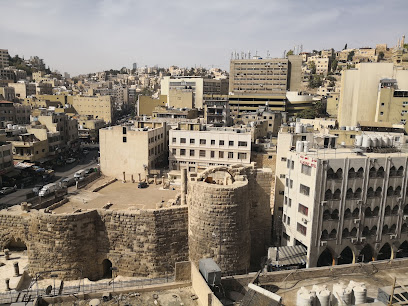
Wadi Mujib
Discover Wadi Mujib, Jordan's breathtaking national reserve, where adventure meets stunning natural beauty and diverse wildlife in a unique desert landscape.
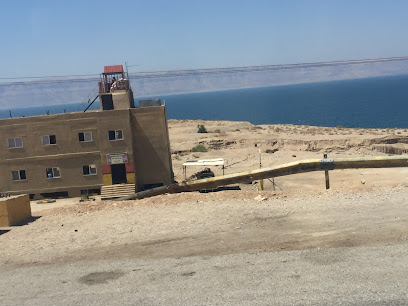
Shobak Castle - Montreal
Discover the enchanting Shobak Castle in Jordan, a remarkable archaeological site showcasing the rich history of the Crusaders and breathtaking views.
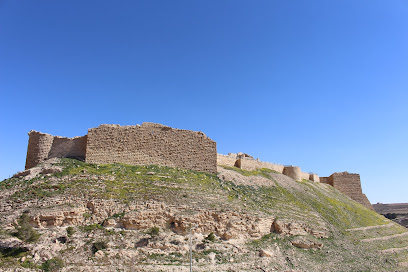
Unmissable attractions to see
Wadi Rum Protected Area
Discover Wadi Rum, a UNESCO World Heritage site in Jordan known for its stunning desert landscapes and rich Bedouin culture.
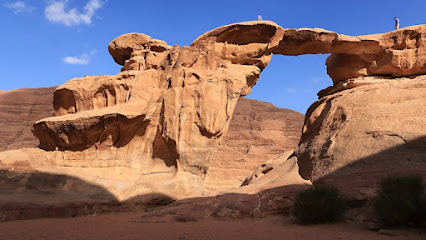
Ajloun Castle
Discover the historical significance and breathtaking views of Ajloun Castle, a medieval fortress steeped in the rich history of Jordan.
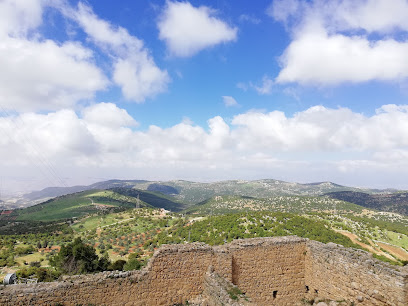
AlHafayer Park
Experience the natural beauty and vibrant atmosphere of AlHafayer Park, a perfect retreat for relaxation and cultural exploration in Aqaba.
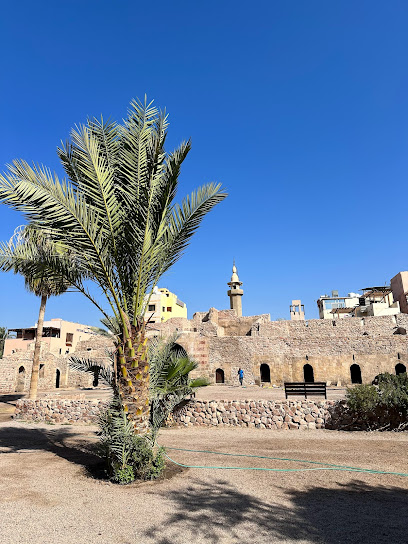
Wadi Rum Visitor Center
Explore the Wadi Rum Visitor Center, your essential stop for discovering the breathtaking landscapes and rich culture of Jordan's iconic desert.
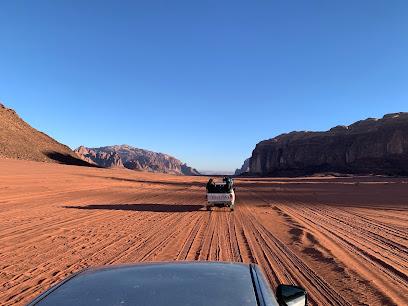
Azraq Wetlands Reserve
Experience the breathtaking beauty of Azraq Wetlands Reserve, a serene national park and nature preserve in Jordan, rich in wildlife and stunning landscapes.
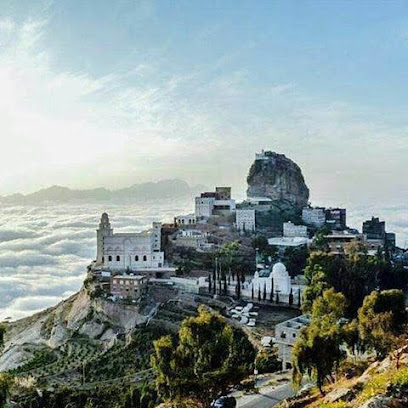
Alameleh Inscriptions
Discover the Alameleh Inscriptions in Disah, Jordan—a historical landmark rich in ancient artistry and cultural significance.
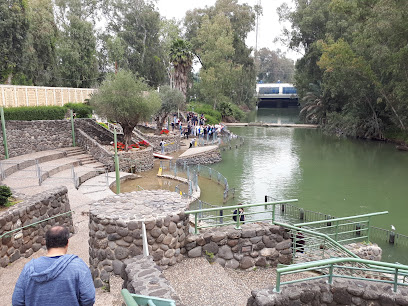
Aqaba Marine Reserve
Explore the Aqaba Marine Reserve, a stunning protected area in Jordan known for its vibrant coral reefs and diverse marine life, perfect for adventure seekers.
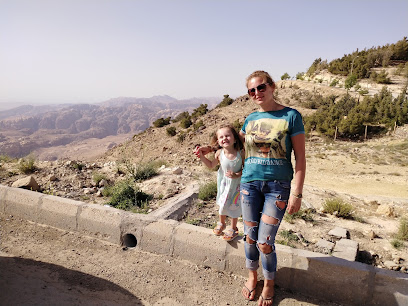
Aqaba Bird Observatory
Experience the beauty of nature at Aqaba Bird Observatory, a premier birdwatching destination in Jordan, perfect for nature lovers and outdoor enthusiasts.
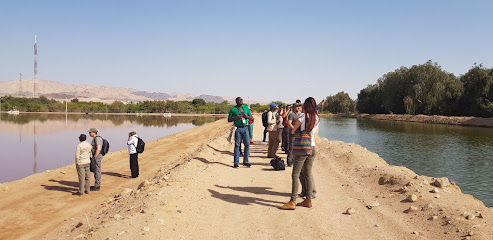
Byzantine Church Petra
Explore the Byzantine Church in Petra - A stunning archaeological site with intricate mosaics and rich historical significance, set in the breathtaking Wadi Musa.
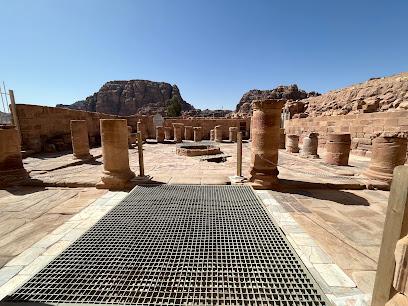
Seven Pillars of Wisdom
Discover the enchanting Seven Pillars of Wisdom in Wadi Rum, a mesmerizing historical landmark showcasing Jordan's stunning desert landscapes and rich cultural history.
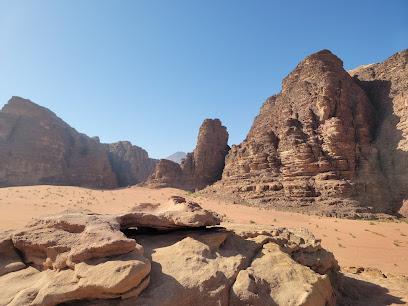
محمية اليرموك
Discover the ancient ruins and stunning landscapes of Umm Qais, a captivating archaeological site in Jordan that offers a glimpse into the past.
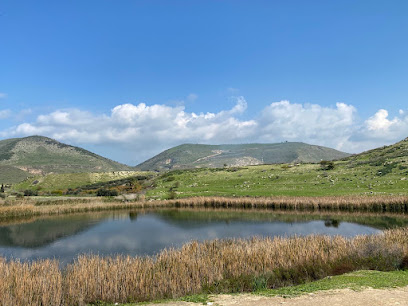
مغامرات سباع الليل
Experience the tranquility and stunning avian diversity at Sabaa Al-Lail, the ultimate bird watching area in As-Salt, Jordan.

Ras An-Naqab Viewpoint
Discover the stunning vistas at Ras An-Naqab Viewpoint, a must-see attraction in Jordan that offers breathtaking landscapes and serene beauty.
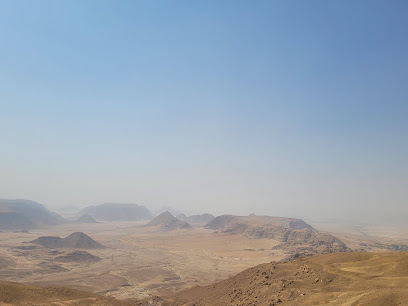
Essential places to dine
Tawaheen AlHawa
Experience authentic Jordanian flavors at Tawaheen AlHawa in Amman - where tradition meets culinary excellence.
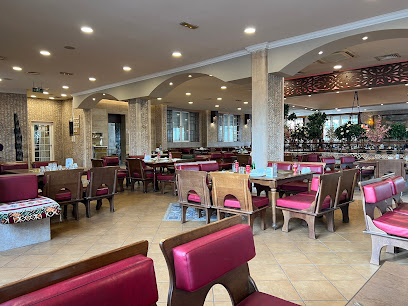
Al Wadi Restaurant
Discover authentic Jordanian flavors at Al Wadi Restaurant in Wadi Musa – where culinary tradition meets breathtaking views.
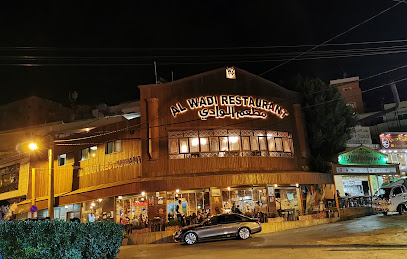
Levant Restaurant
Experience authentic Armenian cuisine at Levant Restaurant in Amman - where tradition meets taste in a delightful dining atmosphere.
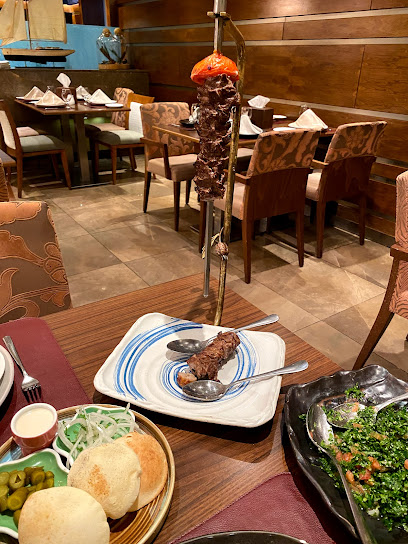
Sufra Restaurant
Experience authentic Jordanian cuisine at Sufra Restaurant in Amman, where every meal tells a story of tradition and flavor.
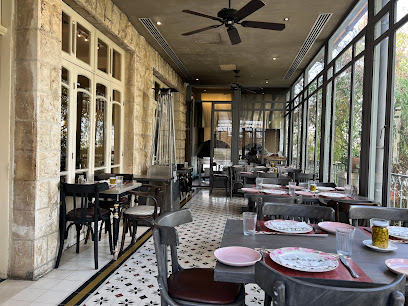
Wild Jordan Center
Discover authentic Jordanian cuisine and eco-tourism insights at Wild Jordan Center – where culture meets sustainability.

HIGH GARDEN Rooftop
Discover culinary excellence at HIGH GARDEN Rooftop in Amman—where breathtaking views meet innovative cuisine and signature cocktails.
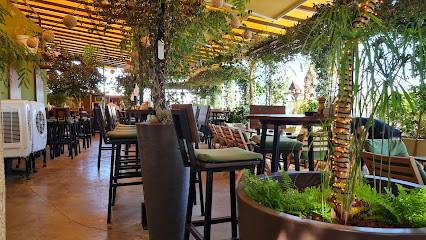
Buffalo Wings & Rings - Dead Sea
Savor mouth-watering chicken wings and fast food at Buffalo Wings & Rings near the scenic Dead Sea - a must-visit for every tourist!
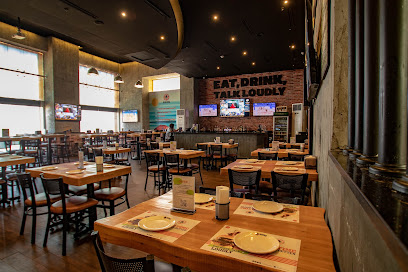
Jordan Heritage Restaurant مطعم ارث الاردن
Savor the rich flavors of authentic Jordanian cuisine at Amman's renowned dining spot - Jordan Heritage Restaurant.
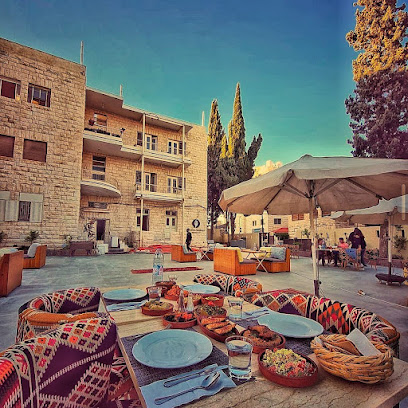
Beit Al-Barakah restaurant
Experience authentic Jordanian cuisine at Beit Al-Barakah in Wadi Musa – where every meal is a journey into local flavors.
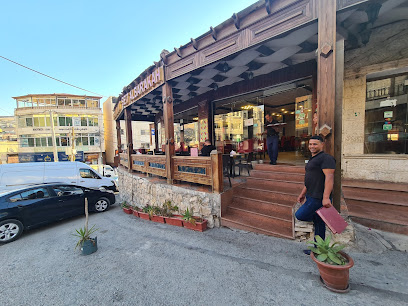
Watar Ziryab
Discover exquisite Jordanian cuisine at Watar Ziryab in As-Salt - where tradition meets modern flair for an unforgettable dining experience.
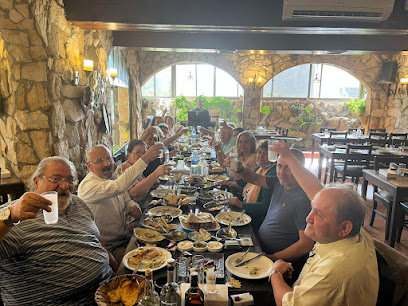
Rakwet Kanaan Restaurant & Cafe
Experience authentic Jordanian flavors at Rakwet Kanaan Restaurant & Cafe in Aqaba - a must-visit for food lovers!
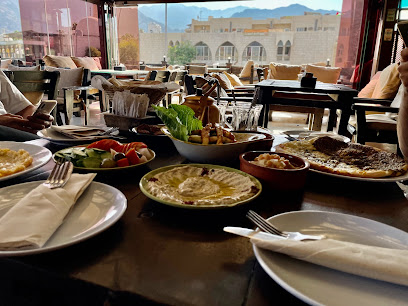
Siwar Al-Yasameen Restaurant مطعم سوار الياسمين
Experience exquisite Middle Eastern flavors at Siwar Al-Yasameen Restaurant in Amman – where tradition meets modern dining.
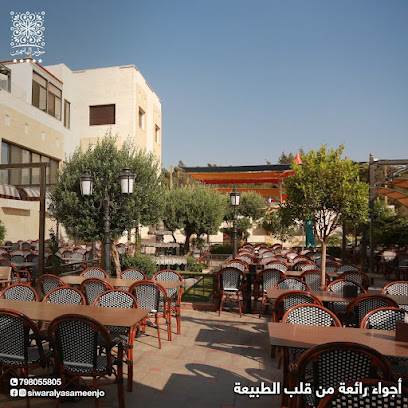
Meat on fire Restaurant
Experience authentic Arab cuisine and exceptional steakhouse dishes at Meat on Fire Restaurant in Wadi Musa.
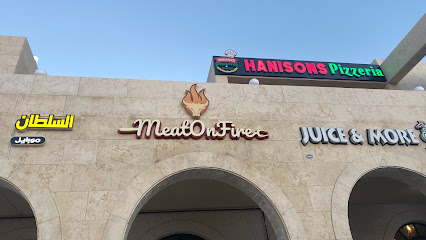
Alqantarah Restaurant
Experience authentic Middle Eastern cuisine at Alqantarah Restaurant in Wadi Musa - where flavor meets tradition.
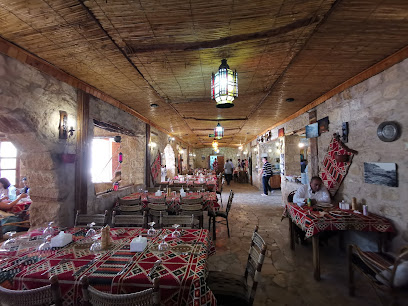
Al Gherbal Restaurant مطعم الغربال
Experience authentic Jordanian cuisine at Al Gherbal Restaurant in As-Salt – where tradition meets taste.
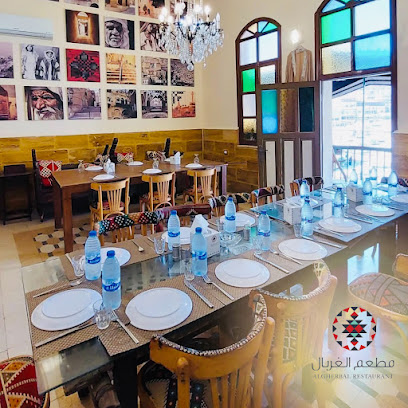
Markets, malls and hidden boutiques
Abdali Mall
Discover Abdali Mall, Amman's premier shopping destination, where shopping, dining, and entertainment come together in a vibrant atmosphere.
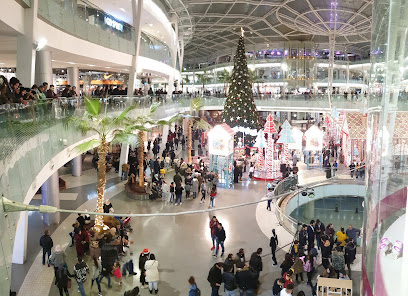
Jordan Craft Center
Explore the Jordan Craft Center: A vibrant hub of local artistry, showcasing handmade crafts and souvenirs that embody the spirit of Jordan.
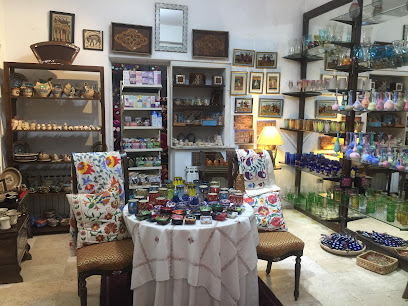
Jordan River Designs
Explore Jordan River Designs for authentic souvenirs, handcrafted treasures, and a glimpse into Jordanian culture in the heart of Amman.
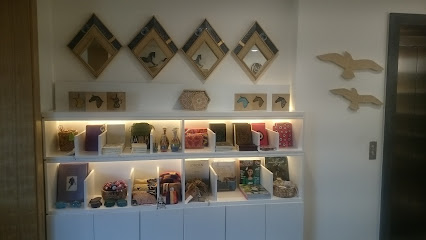
Jo Shop
Explore Jo Shop in Amman for unique handmade crafts reflecting Jordan's rich cultural heritage, perfect for memorable souvenirs.
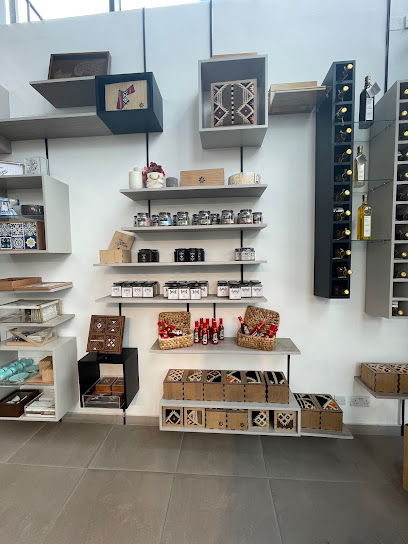
Black Iris Handicrafts
Shop unique Jordanian crafts and experience local culture at Black Iris Handicrafts in Na'ur, a must-visit shopping destination.
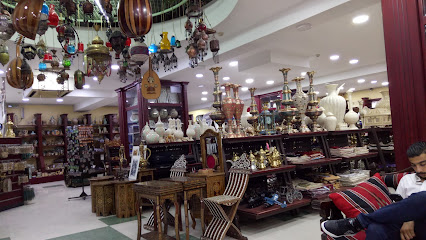
Black Iris Amman
Explore the essence of Jordanian culture and contemporary style at Black Iris Amman, a premier shopping destination in the heart of the city.
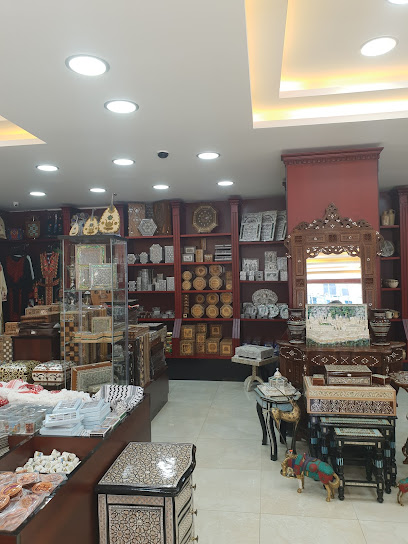
FNL Rainbow St. شارع الرينبو
Discover unique clothing and gifts that capture the essence of Jordanian culture at FNL Rainbow Street in Amman.
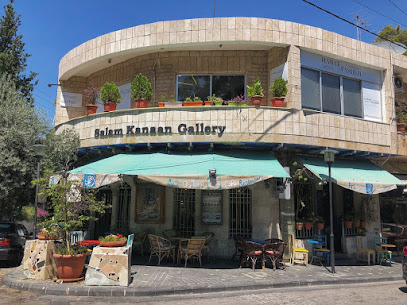
All From Jordan
Explore the vibrant world of Jordanian crafts and cosmetics at All From Jordan, a must-visit store in Amman for unique souvenirs.
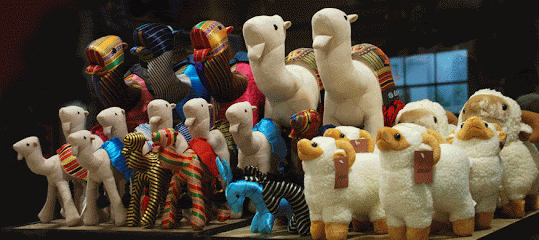
BRAND ONE
Discover the latest trends in men's fashion at BRAND ONE, a premier clothing store in the heart of Jordan, offering style, quality, and variety.

Mosaic house art & mosaics
Explore the artistic charm of Mosaic House Art & Mosaics on Mount Nebo, showcasing exquisite mosaics that reflect Jordan's rich cultural heritage.
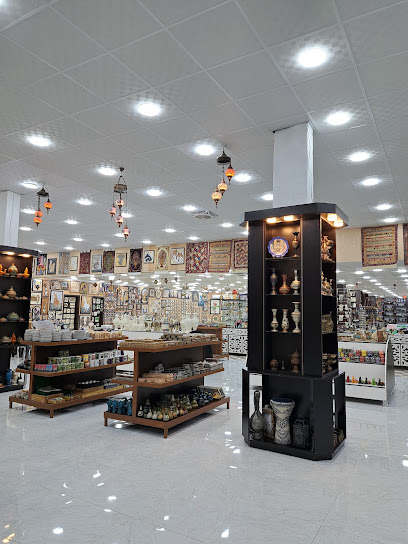
Rich N' Famous Jewelry
Explore Rich N' Famous Jewelry in Amman for exquisite gold and diamond pieces, blending tradition with modern elegance for every jewelry lover.
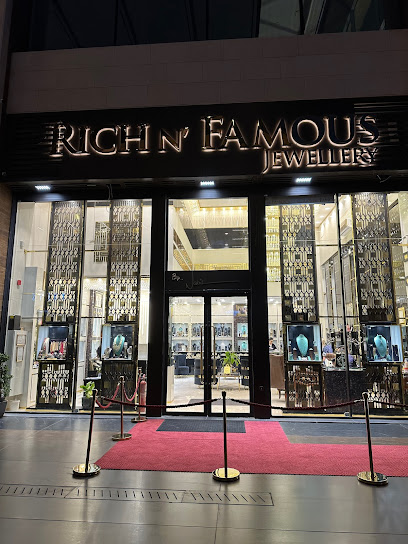
Highlight stores-أسواق الضوء الساطع
Explore Highlight Stores in Petra: a unique shopping mall for antiques, perfumes, and memorable Jordanian treasures.
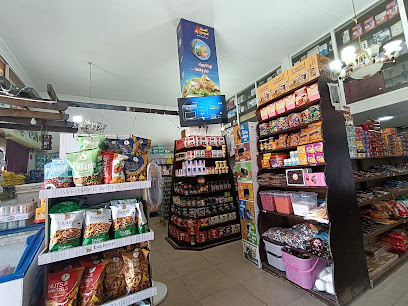
Al-Karam Qadri
Explore the latest fashion trends at Al-Karam Qadri, Amman's stylish clothing store in Maxim Mall, where local culture meets contemporary style.
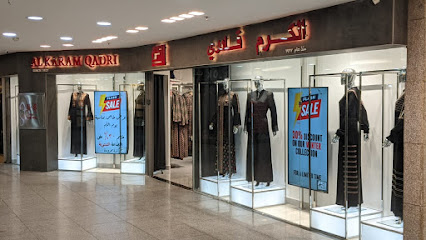
Menashop
Explore Menashop in Amman for a unique blend of cosmetics, gifts, and stationery in a delightful shopping atmosphere.
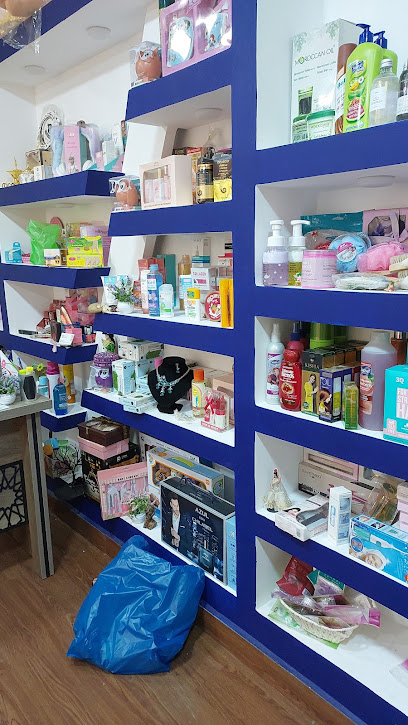
ARTREEJO
Discover ARTREEJO in Amman, a rustic furniture store that inspires creativity with handcrafted pieces and do-it-yourself projects, perfect for home decor.
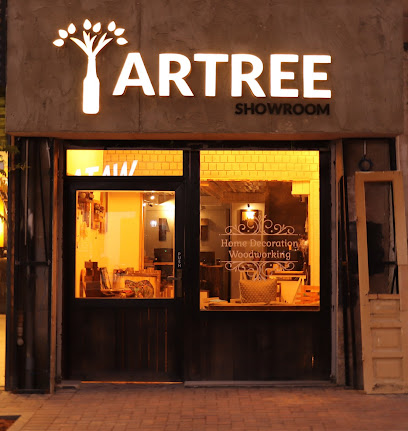
Essential bars & hidden hideouts
The Corner's Pub
Discover The Corner's Pub in Amman - a vibrant hub for locals and travelers featuring delicious drinks, great food, and an inviting atmosphere.
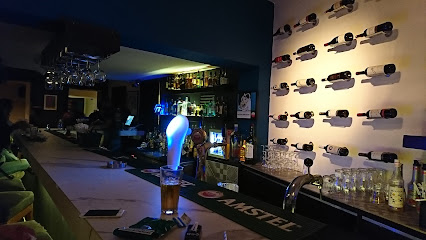
Dubliners
Discover Dubliners, an authentic Irish pub in Amman, where traditional cuisine meets vibrant culture for an unforgettable dining experience.
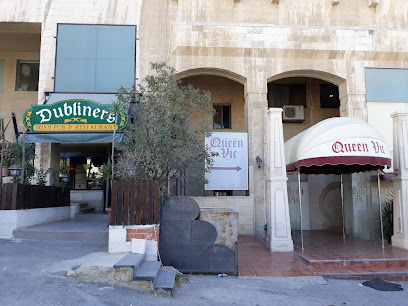
Murphy's - House of Rock
Discover the vibrant atmosphere of Murphy's - House of Rock, a top pub in Amman offering delicious food, refreshing drinks, and live music.
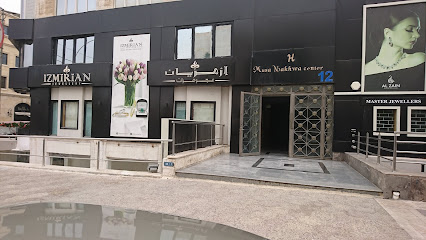
SNUG
Experience the vibrant atmosphere and diverse menu at The Snug Pub in Amman, an ideal spot for food and drink lovers.
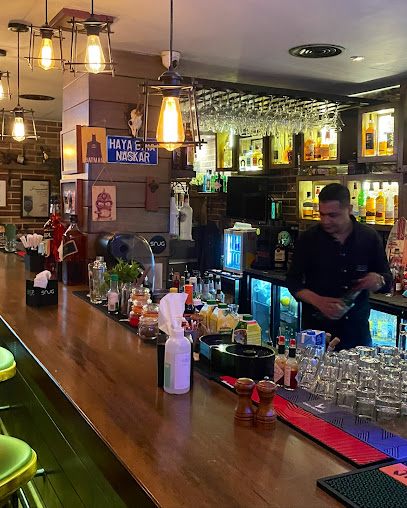
Rovers Return
Discover Rovers Return in Aqaba: A vibrant pub offering delightful food, refreshing drinks, and a lively atmosphere for tourists and locals alike.
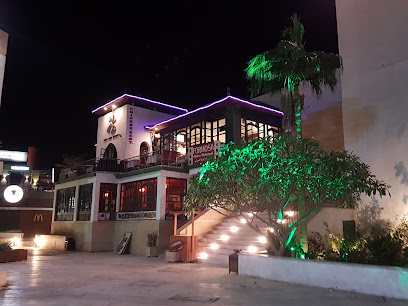
The Nub
Discover the lively atmosphere of The Nub in Amman, where delicious food and refreshing drinks create unforgettable experiences.
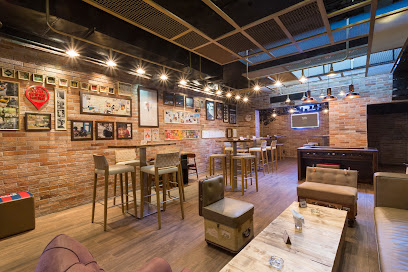
The Cave Bar
Experience the enchanting ambiance of The Cave Bar in Wadi Musa, a perfect retreat for travelers after exploring the wonders of Petra.
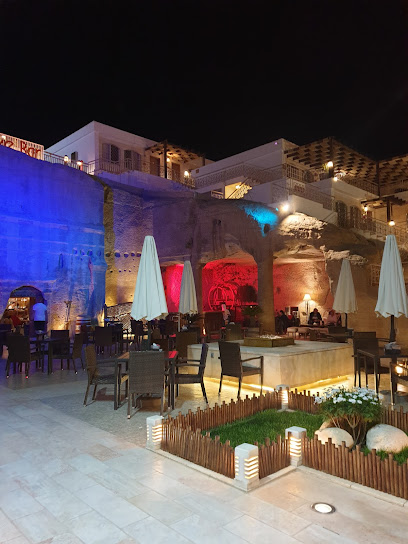
HQ Resto.Pub
Discover the lively HQ Resto.Pub in Amman, where traditional flavors meet modern vibes in a vibrant setting perfect for tourists and locals alike.
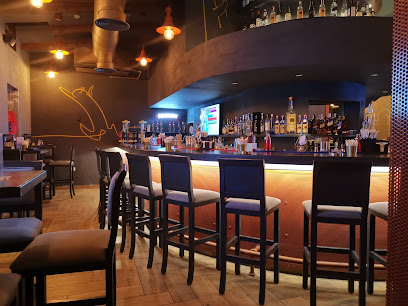
Long Island club
Discover the heart of Amman's nightlife at Long Island Club, a vibrant pub and nightclub offering unforgettable entertainment and delicious drinks.
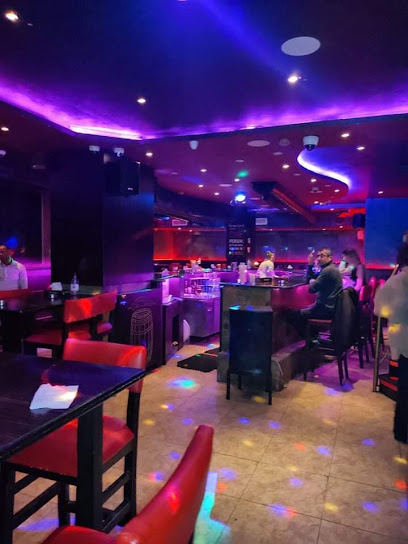
Ghoroub Sunset Bar & Lounge
Experience the breathtaking sunsets of Amman at Ghoroub Sunset Bar & Lounge, where stunning views meet sophisticated relaxation.
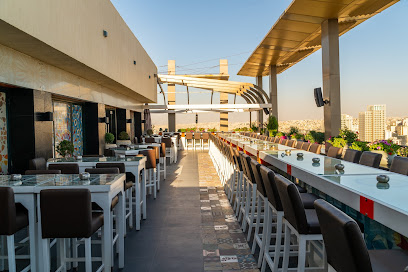
Kilkenny Bar
Experience the vibrant atmosphere of Kilkenny Bar in Wadi Musa, where local charm meets a lively nightlife for all visitors.
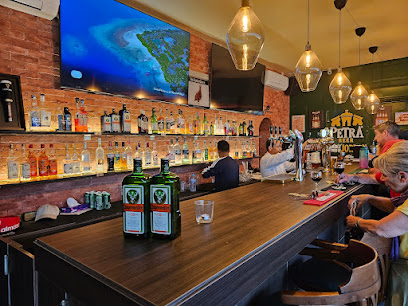
Bar on Four
Experience the vibrant nightlife at Bar on Four, where stunning views and exquisite drinks create an unforgettable evening in Amman.
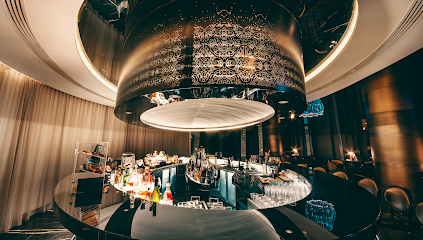
Valley Café & Bar
Experience the perfect blend of relaxation and vibrant atmosphere at Valley Café & Bar by the Dead Sea, where stunning views meet delightful cuisine.
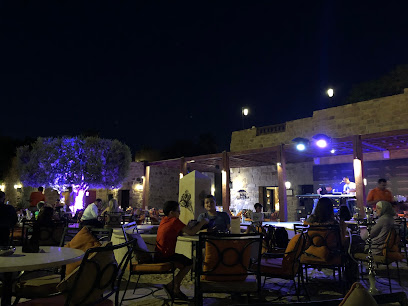
Rabbel Lounge & Bar
Discover the tranquil charm of Rabbel Lounge & Bar on Dead Sea Road, offering exquisite dining and stunning views in a serene atmosphere.
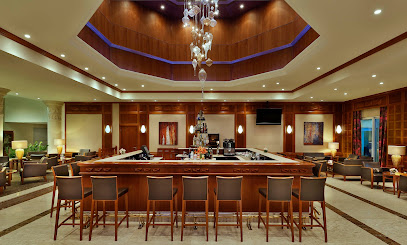
Local Phrases about Ras Al Naqb
-
- Helloمرحبا
[marhaba] - Goodbyeوداعا
[wadaa'an] - Yesنعم
[na'am] - Noلا
[la] - Please/You're welcomeمن فضلك
[min fadlik] - Thank youشكرا لك
[shukran lak] - Excuse me/Sorryعذرا
[athara] - How are you?كيف حالك؟
[kayfa halak?] - Fine. And you?بخير. وأنت؟
[bikhayr. wa'ant?] - Do you speak English?هل تتحدث الإنجليزية؟
[hal tatahadath al'injlizia?] - I don't understandأنا لا أفهم
[ana la afham]
- Helloمرحبا
-
- I'd like to see the menu, pleaseأود أن أرى القائمة، من فضلك
[awad an ara alqaimah, min fadlik] - I don't eat meatأنا لا آكل اللحم
[ana la aakol allahm] - Cheers!في صحتك
[fi sahtak] - I would like to pay, pleaseأريد أن أدفع، من فضلك
[ardi an adfaa, min fadlik]
- I'd like to see the menu, pleaseأود أن أرى القائمة، من فضلك
-
- Help!النجدة!
[alnajdah!] - Go away!انصرف!
[ansurf!] - Call the Police!اتصل بالشرطة!
[iatisil bialshurta!] - Call a doctor!اتصل بالطبيب!
[iatisil bialtabib!] - I'm lostلقد ضللت الطريق
[lakad dalalt altariq] - I'm illأنا مريض
[ana mareed]
- Help!النجدة!
-
- I'd like to buy...أود أن أشتري...
[awad an ashtari...] - I'm just lookingأنا فقط أتفرج
[ana faqat atfarij] - How much is it?كم هو ثمنه؟
[kam huwa thamanuhu?] - That's too expensiveهذا غالي جدا
[hatha ghali jiddan] - Can you lower the price?هل يمكنك خفض السعر؟
[hal yumkinuk khafdh alsu'r?]
- I'd like to buy...أود أن أشتري...
-
- What time is it?كم الساعة؟
[kam alsaa'ah?] - It's one o'clockالساعة الواحدة
[alsaa'ah alwahidah] - Half past (10)الساعة والنصف
[alsaa'ah walnisf] - Morningالصباح
[assabah] - Afternoonالظهر
[alduhr] - Eveningالمساء
[almasa'] - Yesterdayأمس
[ams] - Todayاليوم
[alyawm] - Tomorrowغدا
[ghadan] - 1واحد
[wahid] - 2اثنان
[ithnan] - 3ثلاثة
[thalatha] - 4أربعة
[arba'a] - 5خمسة
[khamsa] - 6ستة
[sitta] - 7سبعة
[sab'a] - 8ثمانية
[thamania] - 9تسعة
[tasia] - 10عشرة
[ashara]
- What time is it?كم الساعة؟
-
- Where's a/the...?أين هو/هي...؟
[ayn huwa/hya...?] - What's the address?ما هو العنوان؟
[ma huwa al'unwan?] - Can you show me (on the map)?هل يمكنك أن تريني (على الخريطة)؟
[hal yumkinuk an tarini (ala alkhareetah)?] - When's the next (bus)?متى يأتي الحافلة التالية؟
[mata ya'ti alhafilat altaliyah?] - A ticket (to ....)تذكرة (إلى ....)
[tadhkirah (ila ....)]
- Where's a/the...?أين هو/هي...؟
History of Ras Al Naqb
-
Ras Al Naqb has long been a crucial juncture in the network of ancient trade routes that crisscrossed the Middle East. This strategic location connected the Arabian Peninsula with the Levant and beyond, facilitating the exchange of goods, cultures, and ideas. Caravans laden with spices, textiles, and precious metals would pass through this area, making it a bustling hub of commerce.
-
The Nabataeans, an ancient Arab civilization, left an indelible mark on Ras Al Naqb. Renowned for their architectural prowess, the Nabataeans constructed complex water management systems and monumental structures. Their influence is evident in the remnants of ancient roads and inscriptions found in the region, showcasing their engineering ingenuity and the area's historical importance.
-
During the Roman Empire's expansion, Ras Al Naqb became a significant military and administrative center. The Romans built forts and watchtowers to secure their trade routes and protect their empire's borders. Archaeological findings, such as pottery shards and coins, provide a glimpse into the daily lives of the Roman soldiers and civilians who once inhabited this region.
-
The Byzantine era brought a period of religious and cultural transformation to Ras Al Naqb. Christian monasteries and churches were established, reflecting the spread of Christianity throughout the region. The remains of these religious structures, adorned with intricate mosaics and frescoes, offer insight into the spiritual and artistic life of the Byzantine inhabitants.
-
The advent of Islam in the 7th century CE marked a new chapter in Ras Al Naqb's history. The region witnessed the spread of Islamic culture and architecture, with the construction of mosques and caravanserais. These structures served as places of worship and rest for travelers, embodying the area's continued significance as a crossroads of civilization.
-
Under Ottoman rule, Ras Al Naqb remained an important strategic and commercial site. The Ottomans reinforced existing infrastructure and established new administrative centers. The legacy of Ottoman architecture and urban planning can still be observed in the region, reflecting the lasting impact of their governance.
-
In the modern era, Ras Al Naqb has evolved while preserving its historical essence. It serves as a gateway for tourists exploring Jordan's rich cultural heritage. Efforts to conserve and restore ancient sites ensure that the historical significance of Ras Al Naqb continues to be celebrated and understood by visitors from around the world.
Ras Al Naqb Essentials
-
Ras Al Naqb is located in southern Jordan, near the town of Ma'an. The nearest international airport is Queen Alia International Airport in Amman, approximately 250 kilometers away. From Amman, you can rent a car or hire a taxi to drive to Ras Al Naqb, which takes about 3 to 4 hours by road. Alternatively, you can take a bus from Amman to Ma'an and then a local taxi to Ras Al Naqb.
-
While Ras Al Naqb is a relatively small area, having a rented car can be very convenient for getting around. Local taxis are available but may not be as frequent as in larger cities. Public buses connect Ma'an to other towns, but schedules can be irregular. For exploring the more remote areas, private tours or hiring a local guide is recommended.
-
The official currency in Jordan is the Jordanian Dinar (JOD). Credit cards are accepted in some hotels and restaurants, but it is advisable to carry cash, especially for smaller shops and local markets. ATMs are available in Ma'an and other larger towns, but it is wise to withdraw sufficient cash before heading to more remote areas like Ras Al Naqb.
-
Ras Al Naqb is generally a safe destination for tourists. However, it is always advisable to take standard precautions. Avoid walking alone at night in unfamiliar areas and keep an eye on your belongings in crowded places. There are no specific high-crime areas targeting tourists, but staying vigilant and aware of your surroundings is always recommended.
-
In case of emergency, dial 911 for immediate assistance. The nearest police station and medical facilities are available in Ma'an, about 30 kilometers away. It is recommended to have travel insurance that covers medical emergencies. For minor health issues, there are pharmacies in Ma'an where you can purchase over-the-counter medications.
-
Fashion: Do dress modestly, especially when visiting religious sites or rural areas. Avoid wearing revealing clothing. Religion: Do respect local customs and traditions. Always cover your head when entering mosques. Public Transport: Do be respectful and give up your seat to elderly passengers. Don't eat or drink on public transport. Greetings: Do greet people with a handshake or a slight bow of the head as a sign of respect. Eating & Drinking: Do try local delicacies and accept food offerings graciously. Don't refuse hospitality, as it is considered impolite.
-
To experience Ras Al Naqb like a local, engage with the residents, who are often friendly and willing to share stories about the area's history and culture. Visit the local markets to buy fresh produce and traditional Jordanian goods. Don't miss exploring the nearby natural landscapes, including the stunning desert scenery and rock formations. Hiring a local guide can offer deeper insights and a more enriching experience.
Nearby Cities to Ras Al Naqb
-
Things To Do in Petra
-
Things To Do in Wadi Rum
-
Things To Do in Aqaba
-
Things To Do in Eilat
-
Things To Do in Dana
-
Things To Do in Tafilah
-
Things To Do in Kerak
-
Things To Do in Masada
-
Things To Do in Beersheba
-
Things To Do in Ein Gedi
-
Things To Do in Dead Sea
-
Things To Do in Dahab
-
Things To Do in Bethlehem
-
Things To Do in Madaba
-
Things To Do in Jerusalem







